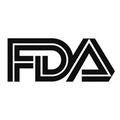FDA Plans ODAC Meeting for Accelerated Oncology Approvals Without Confirmatory Benefit
The FDA has announced a meeting of the Oncologic Drugs Advisory Committee to review 6 accelerated approvals for immunotherapy agents where the clinical benefit was not verified in confirmatory trials. The ODAC meeting will be taking place April 27 through 29.

The FDA has announced a meeting of the Oncologic Drugs Advisory Committee (ODAC) to review 6 accelerated approvals for immunotherapy agents where the clinical benefit was not verified in confirmatory trials. The ODAC meeting will be taking place April 27 through 29.
“We are committed to ensuring the integrity of the accelerated approval program, which is designed to bring safe and effective drugs to patients with unmet medical needs as quickly as possible. The program allows the FDA to approve a drug or biologic product intended to treat a serious or life-threatening condition based on an outcome that can be measured earlier than survival that demonstrates a meaningful advantage over available therapies. However, when confirmatory trials do not confirm clinical benefit, a reevaluation must be performed to determine if the approval should be withdrawn,” said Richard Pazdur, MD, director of the FDA’s Oncology Center of Excellence and acting director of the Office of Oncologic Diseases in the FDA’s Center for Drug Evaluation and Research, in a statement.
“This public meeting of the advisory committee creates an opportunity for external oncology experts and patients with cancer to share input and perspective with the FDA. After this advisory meeting, our staff will consider the committee’s comments and will make final decisions regarding continuing approval of each indication.”
The 6 indications to be reviewed in the ODAC meeting are:
- Atezolizumab (Tecentriq) in combination with paclitaxel for the treatment of adult patients with unresectable locally advanced or metastatic triple-negative breast cancer (TNBC) whose tumors express PD-L1
- Atezolizumab for the treatment of patients with locally advanced or metastatic urothelial carcinoma who are not eligible for cisplatin-containing chemotherapy
- Pembrolizumab (Keytruda) for the treatment of patients with locally advanced or metastatic urothelial carcinoma who are not eligible for cisplatin-containing chemotherapy
- Pembrolizumab for the treatment of patients with recurrent locally advanced or metastatic gastric or gastroesophageal junction adenocarcinoma whose tumors express PD-L1, with disease progression on or after 2 or more prior lines of therapy including fluoropyrimidine- and platinum-containing chemotherapy, and if appropriate, HER2-targeted therapy
- Pembrolizumab for the treatment of patients with hepatocellular carcinoma (HCC) who have been previously treated with sorafenib (Nexavar)
- Nivolumab (Opdivo) as a single agent for the treatment of patients with HCC who have been previously treated with sorafenib
Setting of this meeting follows 4 indications that have been recently voluntarily withdrawn or planned to be withdrawn from the US market by the developers based on accelerated approvals that also were not found to be significant in subsequent trials:
- Atezolizumab for the treatment of patients with prior platinum-treated metastatic urothelial carcinoma
- Pembrolizumab for the treatment of patients with metastatic small cell lung cancer (SCLC) with disease progression on or after platinum-based chemotherapy and at least 1 other prior line of therapy
- Durvalumab for the treatment of previously treated adult patients with locally advanced or metastatic bladder cancer
- Nivolumab for the treatment of patients with SCLC who had disease progression after a platinum-based chemotherapy and at least 1 other line of therapy
The meeting for the 6 indications in question and the 4 prior indications represent an industry-wide evaluation by the FDA of accelerated approvals in oncology that did not confirm clinical benefit.
During the ODAC meeting, which is open to the public, the committee members will review each individual drug and discuss if continued approval should be granted and if additional trials should be required for each indication.
Only 6% of accelerated oncology approvals have ever been withdrawn from the market since the accelerated approval program first began, which includes the 4 recent actions.
Reference:
FDA In Brief: FDA Oncologic Drugs Advisory Committee to Review Status of Six Indications Granted Accelerated Approval. FDA. March 11, 2021. Accessed March 12, 2021. https://bit.ly/30C3oa5